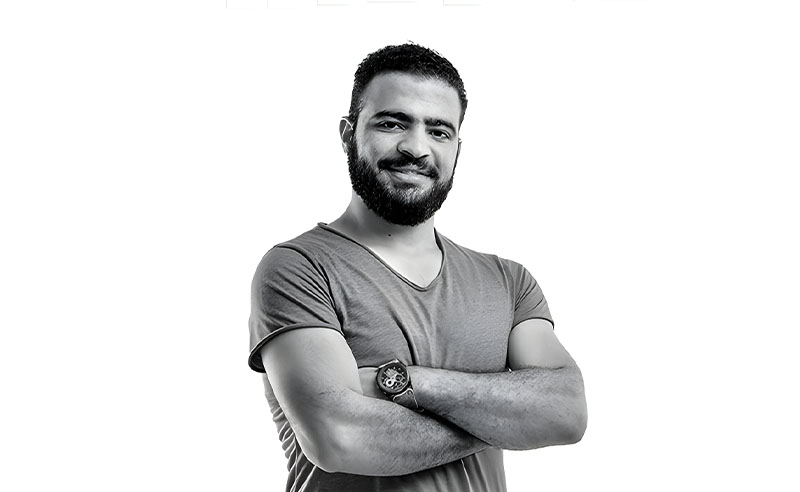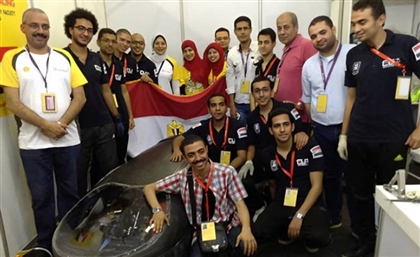How Climate Tech is Cultivating Interest in the Middle East
Despite the global economic downturn, climate tech startups in the Middle East managed to find greater growth amongst investors.

Since 2022, startups have been hit hard by the global funding slowdown. Geopolitical tensions and macroeconomic challenges - inflation, rising interest rates, and supply chain disruptions - have cooled VC interest in many startups, and climate tech is no exception. Still, entrepreneurs in the green market seem to be holding up better than startups in other sectors. According to a recent PwC report, venture capital and private equity investments in climate tech startups have declined by 40% so far in 2023, while investments in other sectors fell by 50%. Despite climate tech experiencing a drop in funding this year, it still accounted for 10% of investments, up from 7% in 2018, according to the same report.
In the Middle East, climate tech has also been growing, albeit slowly, during the past few years. According to data platform Magnitt, startups in this sector have recorded a total of $65.1 million in funding from 2018 to 2022, growing 11x over the past five years. The focus of climate tech has continued into 2023, with $40 million raised in the first half of the year.
“We see the market growing and gaining attention,” Lola Fernandez, Senior Investment Associate at VentureSouq, tells StartupScene. “A lot of startups have been emerging in the last 18 months, leveraging technology to solve climate change issues, but we still don’t see a lot of funding going into early stage. We foresee that changing in the future as climate change continues to be pushed to the forefront in the region.”

With the Middle East hosting two consecutive editions of the UN’s Conference of the Parties (COP), namely COP27 in Egypt and the upcoming COP28 in the UAE, the opportunity to direct more capital for climate tech startups and lead decarbonisation efforts in the region has presented itself.
PATH TO PROFITABILITY
Climate tech encompasses a wide range of sectors, including renewable energy, low-carbon cement, regenerative farming, as well as any technology that reduces greenhouse gas emissions or addresses climate change. Throughout these sectors, its main challenge remains the same: showing profitability, quickly.
Amr Shalan from TileGreen, an Egyptian startup that turns plastic bags into tiles, believes that any startup operating in the sustainability space must show a direct link between being sustainable and generating economic returns. “The environmental side is apparent, but founders must demonstrate other benefits besides being sustainable,” he says. “There is an economic element, which is also important to solving environmental problems. Even if its impact is not felt in the near future, it will be in the medium or long term.”

Even if climate tech startups demonstrate profitability, investors still want to see it sooner rather than later. “As an investor, your investment period is typically three to four years, and then your divestment period is five years,” says Ryaan Sharif, General Manager at Flat6Labs, UAE. “I think with sustainability companies, in order for an investor to make a return, it can actually extend beyond that. It can take a longer time for these types of startups to hit profitability and to be self-sustaining, and then for them to actually grow and exit. So, there might be some lesser interest to make those types of investments.”

ROOM FOR OPPORTUNITIES
But where there are challenges, there are also opportunities.
Increasing awareness and establishing legislation is necessary to boost climate tech businesses in the region. Unlike in Europe, the Middle East has limited - and, in some cases, is completely lacking - legislation when it comes to reducing carbon footprint or addressing climate change initiatives. Without it, investment in the climate tech scene will remain limited at best.
Nadeera, a startup providing digital solutions to managing solid waste in the region, has been working in communities in Lebanon, the UAE and more recently Saudi Arabia to collect and recycle waste through its digital app and smart bins. Despite successfully growing its reach in the Middle East, the startup still needs to ensure that it has enough recyclable volumes to be profitable. Without legislation on recycling, however, that can be difficult.
“So, for our industry, we have to work with governments and mainstream collection companies, and prove that our solution works in several pilots that we conducted across several geographies,” says Rabih El Chaar, Co-Founder and CEO of Nadeera. “Nadeera operates in countries where recycling measures may not be enforced, yet through the effective use of technology, we have successfully influenced people's behaviour to adopt better recycling practices.”

Despite the lack of regulation in this space, people and businesses are still taking climate action seriously. Olive Gaea, a UAE-based climate-tech providing a SaaS platform for decarbonisation, is starting to see increased interest from companies to cut their carbon footprint.
“A lot of businesses across the region are under tremendous pressure to develop and act on their climate plans, since stakeholders and governments are asking about it,” says Jessica Scopacasa, Co-Founder and CMO at Olive Gaea. “We’re seeing, for example, the stock exchanges across the GCC already requiring listed companies to disclose their ESG information. At the same time, the UAE Climate Change and Environment Minister is inviting organisations to pledge to net zero, which is creating quite a big change, because once a big player commits to net zero, competitors or industry peers will follow.”

Since launching in 2021, the startup has achieved 4x growth in terms of client engagement, and is now working with businesses in the UAE and the broader GCC region.
CHANGING TIDES
While COP28 may be fueling interest for climate action in the region, the ultimate test will be on delivering on actual climate commitments and ambitions going forward.
Onur Elgun, Co-Founder of CarbonSifr, a UAE-based startup that enables companies to reduce their carbon footprint by embedding climate action into their own products, is optimistic about the future, especially with investors showing increased interest in climate tech in the region.
Since launching in 2022, the startup has raised $1 million in a pre-seed round, and is currently being approached by investors for its tangible climate action solutions. “Investments were not too difficult for us, we managed to raise our seed round successfully,” Elgun says. “VCs are approaching us, and having meetings with us. I think COP is definitely helping. They are bringing in climate experts, which shows the government is focusing on growing this industry, especially in the UAE.”

With the UAE updating its pledge to cut emissions by 40% by 2030, and recently launching initiatives like the UAE Carbon Alliance, which aims to support the transition of a greener economy, the country seems to be taking active steps in addressing climate change.
Meanwhile, Saudi Arabia aims to increase its contribution of renewable energy by 50% as part of its Vision 2030, and Egypt is setting more ambitious goals for its greenhouse gas emissions, reducing it by 37% in the electricity sector by 2030.
“With governments walking the talk, and taking the first step in terms of setting up their targets, and trying to achieve their emission reductions, businesses will start to own up to their share,” says Vivek Tripathi, Co-Founder and CEO at Olive Gaea. “We see organisations changing the way they perceive sustainability, and that’s exactly how we can enforce climate action solutions, in a market that is not yet as regulated as in the US or Europe.”
- Previous Article New Ritz-Carlton Hotel Will Open Near Pyramids of Giza & GEM
- Next Article A Walk Through Downtown Cairo’s Timeless Architecture
























